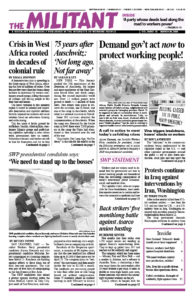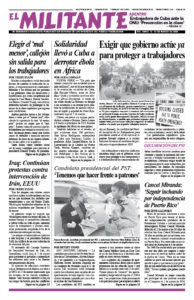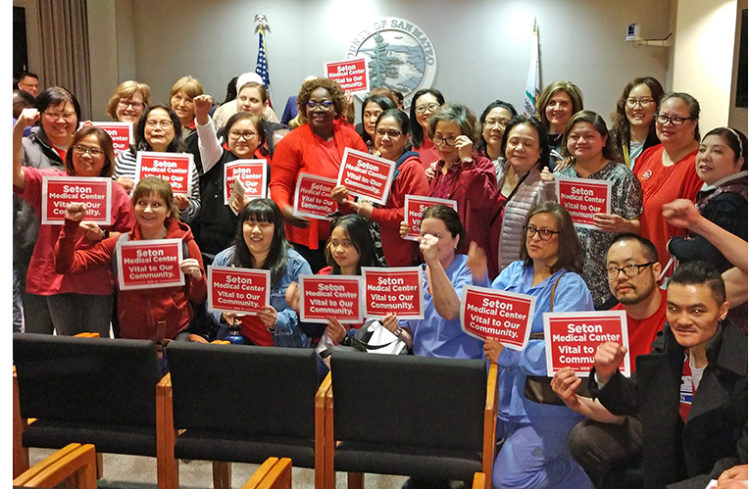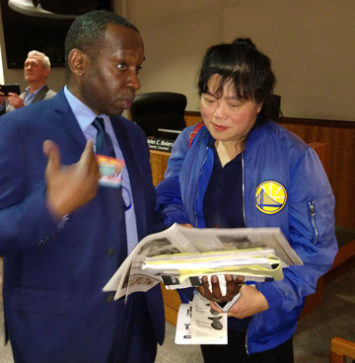DALY CITY, Calif. — Nurses and hospital workers, members of the California Nurses Association and the National Union of Healthcare Workers, have been organizing protests here against the closing of Seton Medical Center, the largest employer in this working-class city of 100,000 just south of San Francisco.
Some 27,000 people are treated in the hospital’s emergency room every year. Over 80 percent of the patients at Seton are on Medicare or MediCal.
Verity, the company that owns Seton, filed for bankruptcy in 2018. Citing financial losses, the bosses also threaten to close Seton Coastside, a smaller nursing facility with the only 24-hour emergency room available to coastal communities further south. In January they closed the St. Vincent Medical Center in Los Angeles, giving no warning.
Union members fighting to save the hospital were joined by doctors and community members, as well as Socialist Workers Party presidential and vice presidential candidates Alyson Kennedy and Malcolm Jarrett, at a San Mateo County Board of Supervisors meeting March 10 called to discuss the closure.
Supervisors voted 4-1 to offer $5 million a year over four years to attract a buyer for the hospital, if one can be found. They made it contingent on the hospital making a profit.
The center has an isolation room equipped to house coronavirus patients. “By closing this hospital, we’d be taking hundreds of doctors and nurses off the line of defense against the coronavirus,” Seton physician Warren Chang told the hearing.
There are far from enough hospital beds in the U.S. to treat the growing numbers of coronavirus patients nationwide, on top of those with other illnesses. In fact, there are 47% less hospital beds than there were in 1990. For those in most serious straits, lack of a hospital bed can be a death sentence. Others who spoke said that more people will die because of the greater distance patients will have to travel for emergency care.
Daly City is home to a large Filipino population. Verona Estrada, a nurse in long-term care, characterized it as “the poorest, most often forgotten part of San Mateo County.” Referring to plans by Verity bosses to seek alternative uses of the land, she said hospitals should be prioritized over parking lots and housing developments.
“That this is being seriously discussed in the midst of the coronavirus pandemic illustrates the problem we have, that profits are put ahead of everything in this country,” Socialist Workers Party presidential candidate Kennedy told the meeting. “Health care is a class question. If you are rich you don’t have a problem getting heath care. If you are working class, you see more hospitals closing where you live, in cities and rural areas.”
The Socialist Workers Party 2020 campaign platform calls for fighting for “universal, government-guaranteed cradle-to-grave health care” for all, not profit-driven health insurance, riddled with copays and deductibles.
“We need to fight for health care to be a human right,” Kennedy said. “That’s why we need to build a movement of working people, millions of us. It’s the only way anything will change.”
Jarrett reported that in his home town of Pittsburgh, thousands of working people were forced to travel long distances to get care after a hospital there closed. He contrasted this to Cuba, where health care is not a commodity to be bought and sold.
“In Cuba, through their revolution, working people fought and won the right to health care,” he said. “They are organized to take care of all those in the community.” To win that here, he said, “will take a fight to emulate their example and take the power out of the hands of the capitalist class.”



